Auteur: Sinek, Simon
Édition: Reprint
Nombre de pages: 256
Éditeur: Portfolio
Date de sortie: 27-12-2011
Détails: Présentation de l’éditeur The inspiring, life-changing bestseller by the author of LEADERS EAT LAST and TOGETHER IS BETTER. In 2009, Simon Sinek started a movement to help people become more inspired at work, and in turn inspire their colleagues and customers. Since then, millions have been touched by the power of his ideas, including more than 28 million who’ve watched his TED Talk based on START WITH WHY — the third most popular TED video of all time. Sinek starts with a fundamental question: Why are some people and organizations more innovative, more influential, and more profitable than others? Why do some command greater loyalty from customers and employees alike? Even among the successful, why are so few able to repeat their success over and over? People like Martin Luther King Jr., Steve Jobs, and the Wright Brothers had little in common, but they all started with WHY. They realized that people won’t truly buy into a product, service, movement, or idea until they understand the WHY behind it. START WITH WHY shows that the leaders who’ve had the greatest influence in the world all think, act, and communicate the same way — and it’s the opposite of what everyone else does. Sinek calls this powerful idea The Golden Circle, and it provides a framework upon which organizations can be built, movements can be led, and people can be inspired. And it all starts with WHY. Extrait 1 ASSUME YOU KNOW On a cold January day, a forty-three-year-old man was sworn in as the chief executive of his country. By his side stood his predecessor, a famous general who, fifteen years earlier, had commanded his nation’s armed forces in a war that resulted in the defeat of Germany. The young leader was raised in the Roman Catholic faith. He spent the next fi ve hours watching parades in his honor and stayed up celebrating until three o’clock in the morning. You know who I’m describing, right? It’s January 30, 1933, and I’m describing Adolf Hitler and not, as most people would assume, John F. Kennedy. The point is, we make assumptions. We make assumptions about the world around us based on sometimes incomplete or false information. In this case, the information I offered was incomplete. Many of you were convinced that I was describing John F. Kennedy until I added one minor little detail: the date. This is important because our behavior is affected by our assumptions or our perceived truths. We make decisions based on what we think we know. It wasn’t too long ago that the majority of people believed the world was flat. This perceived truth impacted behavior. During this period, there was very little exploration. People feared that if they traveled too far they might fall off the edge of the earth. So for the most part they stayed put. It wasn’t until that minor detail was revealed—the world is round—that behaviors changed on a massive scale. Upon this discovery, societies began to traverse the planet. Trade routes were established; spices were traded. New ideas, like mathematics, were shared between societies which unleashed all kinds of innovations and advancements. The correction of a simple false assumption moved the human race forward. Now consider how organizations are formed and how decisions are made. Do we really know why some organizations succeed and why others don’t, or do we just assume? No matter your defi nition of success—hitting a target stock price, making a certain amount of money, meeting a revenue or profi t goal, getting a big promotion, starting your own company, feeding the poor, winning public office—how we go about achieving our goals is very similar. Some of us just wing it, but most of us try to at least gather some data so we can make educated decisions. Sometimes this gathering process is formal—like conducting polls or market research. And sometimes it’s informal, like asking our friends and colleagues for advice or looking back on our own personal experience to provide some perspective. Regardless of the process or t
Soyez le premier à laisser votre avis sur “Start with Why: How Great Leaders Inspire Everyone to Take Action-” Annuler la réponse
Vous devez être connecté pour publier un avis.


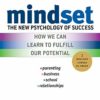
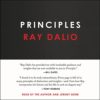
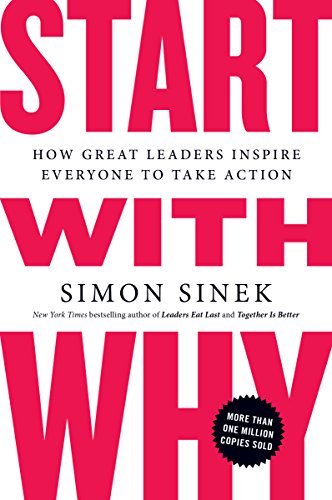
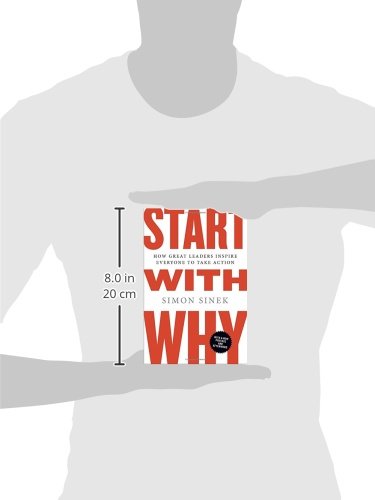
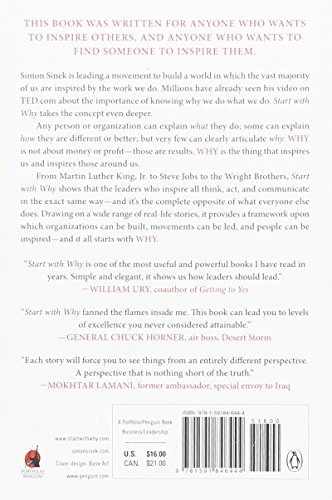
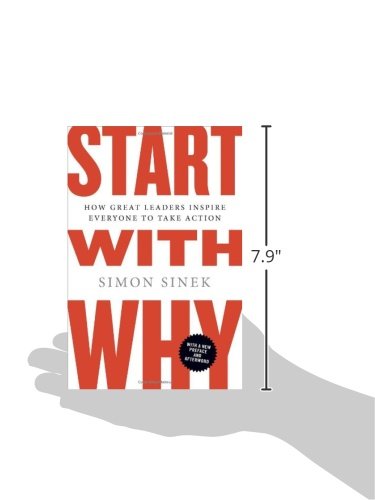
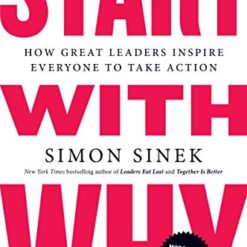
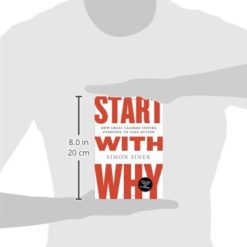
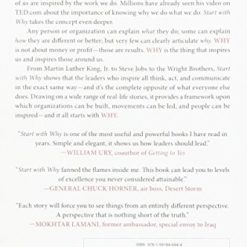
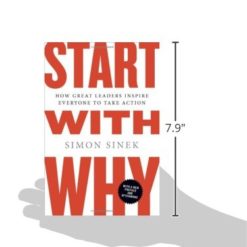






![Lot Autocollant [150-PCS] Q-Window Graffiti Stickers Vinyle Enfants Autocollants pour Voiture Tuning Moto Ps4 Livre Vélo Iphone Scrapbooking Ordinateur Xbox One Bebe Valise Macbook Bumper Bomb Sticker](https://uii.fr/wp-content/uploads/2020/05/71I3F-ZS7sL-247x247.jpg)
![Alternative view of Lot Autocollant [150-PCS] Q-Window Graffiti Stickers Vinyle Enfants Autocollants pour Voiture Tuning Moto Ps4 Livre Vélo Iphone Scrapbooking Ordinateur Xbox One Bebe Valise Macbook Bumper Bomb Sticker](https://uii.fr/wp-content/uploads/2020/05/613S6jxkwoL-247x247.jpg)








Avis
Il n’y a pas encore d’avis.